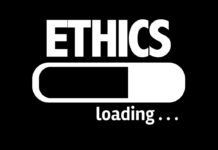The many people around the world who have personally reduced or fully come off psychiatric medications have, through their experiences, gained enormous insights and wisdom about the matter. For years, those of us who have withdrawn from these drugs have been discussing what we learned and discovered, and developing and sharing practical tips and safer strategies to manage our coming-off process. We’ve done this largely through one-on-one mutual support and many disparate online forums and groups.
Today, this growing “layperson withdrawal community” has become a vital, valuable “living library” of wisdom regarding some of the most responsible, risk-reducing ways of tapering off and healing from the effects of psychiatric drugs. We believe that this accumulated wisdom should be collected, organized, and made accessible to people everywhere. For that reason we were inspired to create The Withdrawal Project.
















I know about NAMI. When my dear Jeff was first put in the mental health system in 1991, I incorporated and organized the local McAlester, OK, chapter and was President. I attended the monthly meetings at the Grand Avenue United Methodist Church. I attended National and OK State Conferences. I taught the family course back then called the “Journey of Hope.” I was into it. Because I was also getting my college degree through Bartlesville Wesleyan College through extension courses here in McAlester and was in the same class with Lois Washington who was an assistant to Carl Albert (then Speaker of the U.S. House of Representatives), I was asked to write the Mental Health Section of the document that made McAlester an Oklahoma Certified City. So yes, I was very much into NAMI. And I remember very well the diabetes quote in this article. I also remember the definition of recovery according to them was acceptance of your illness. I served as president for two terms and finally resigned when my son finally convinced me that the drugs he was being forced to take were causing his problems. I remember all too well the total ostracization and isolation I experienced when I resigned from NAMI and asked the State NAMI Board members, of which I was one, to consider that the drugs might be causing a lot of people‘s problems. I was alone and well I knew it. The 1990s was called the “decade of the brain” because that was when the “medical model of psychiatry” came into full force with big Pharma funding. After my resignation, I started noticing many of the local chapters across the State were no longer. Perhaps others came to know what I had learned. Perhaps they, too, recognized the pharmaceutical dogma.
Thanks,
Marilyn Welton
Report comment